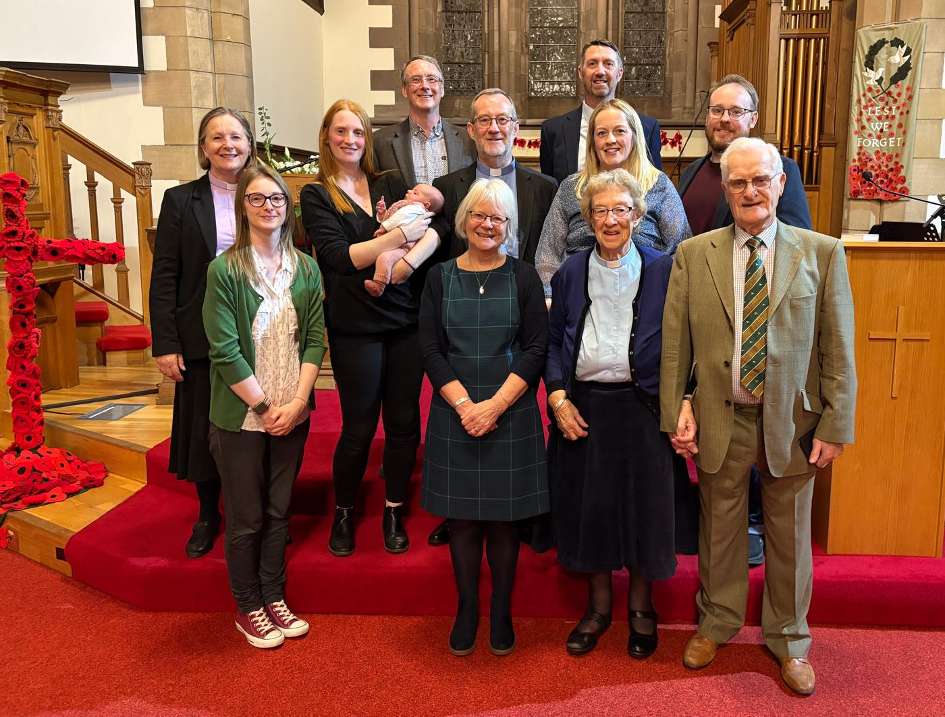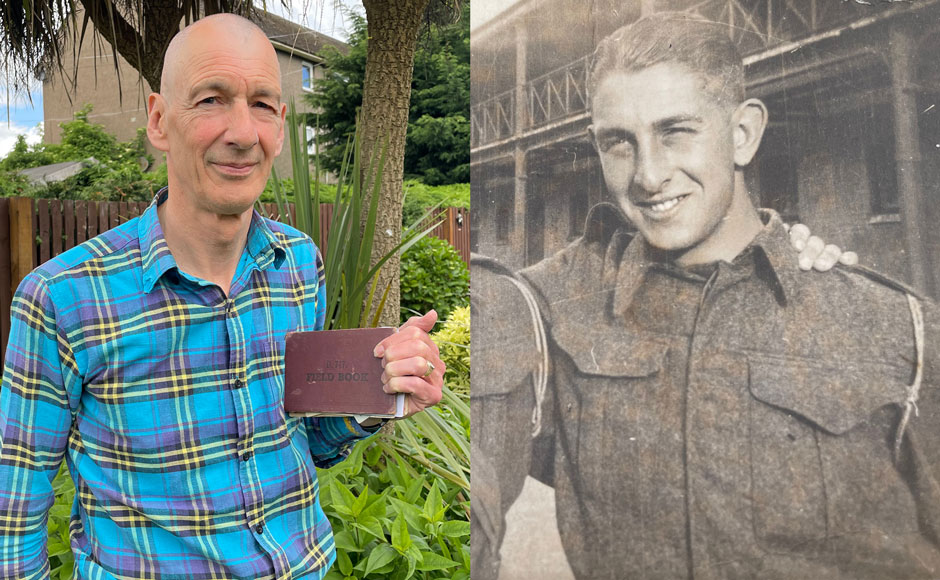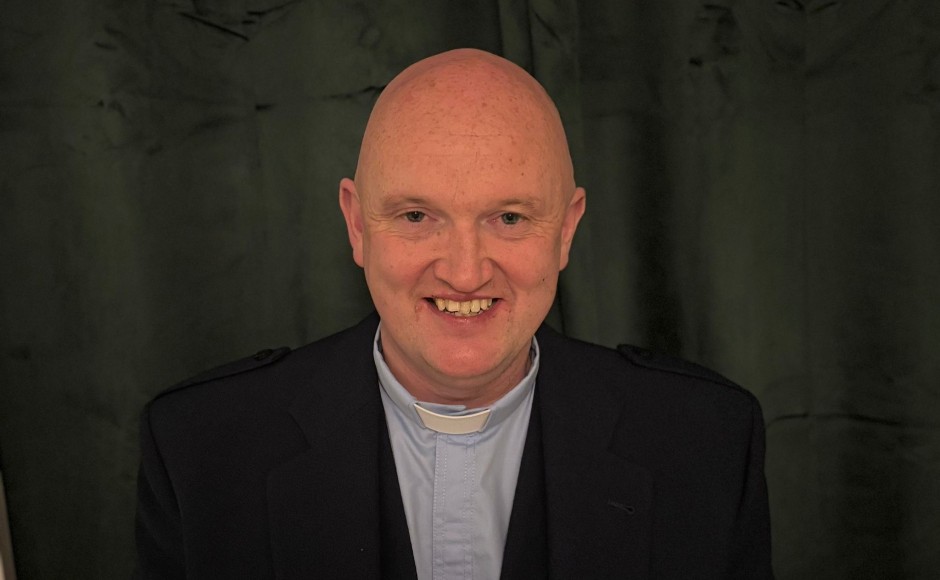Ministers set out impact of pandemic on Church to COVID-19 inquiry
Published on 2 May 2025 9 minutes read
Two ministers have given evidence to the Scottish COVID-19 Inquiry investigating the pandemic's impact on worship and life events.
Rev Bryan Kerr and Rev Dr George Whyte represented the Church in conversations with the Scottish Government on the formation and implementation of guidance relating to restrictions on Church life.
The purpose of the inquiry chaired by Lord Brailsford in Edinburgh, which is independent of government, is to identify lessons to be learned and make recommendations to ensure the country is better prepared for a pandemic in the future.
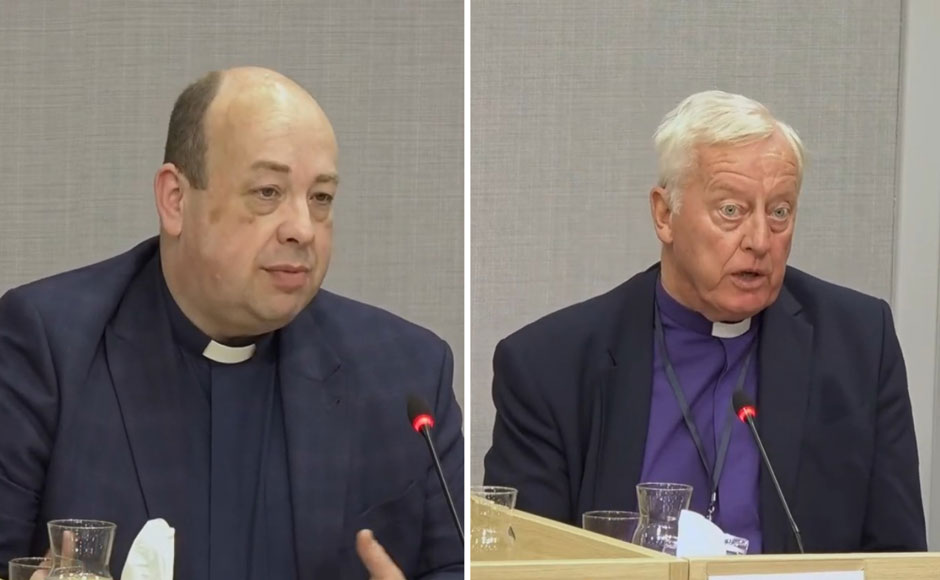
From running food support services, collecting and delivering prescriptions to people isolating at home, hosting online events including Sunday worship services, conducting funerals and providing comfort and solace to a bewildered population, Church ministers and members played a key role during the pandemic.
Dr Whyte was the Principal Clerk of the General Assembly in March 2020 and gave evidence to the inquiry yesterday.
Asked by Junior Counsel Faryma Bahrami if Church leaders felt they had a moral duty to keep religious buildings open to followers, Dr Whyte said: "Our general feeling was there was no choice but to close and therefore we didn't really agonise over the morality of it.
"The balance seemed to us to fall on the side of this is an unknown disease, it is killing thousands of people and we must keep our people safe.
"There was no great weeping, wailing and gnashing of teeth in a guilt sense, we did what we felt was right.
"I think none of us foresaw how we would feel and I think none of us really ever will understand completely all the damage that was done.
"But at the start of it, safety was the big thing and we closed."
Emotional harm
Dr Whyte said there was no doubt that the disease, lockdown and restrictions had caused "emotional and psychological harm" to some people.
"We did not fully understand the impact of people staying at home, or children not being able to attend schools and groups or not being able to mourn properly or look after loved ones," he added.
Mr Kerr gave evidence on Tuesday and set out a series of lessons that he believes should be learned from the experience.
He said governments need to better support faith groups that provide welfare support in communities.
He said communication between faith communities and the Scottish Government was very good but less so with local authorities.
At times, it appeared that those in government or local authority did not fully understand what churches actually do over and above Sunday worship.
Mr Kerr said it was positive that faith groups played a part in developing national guidelines but it was a "big burden" on the Church to produce its own guidelines in an ever-changing landscape, taking account of not just guidance for places of worship but for all other aspects of Church life, including education for youth groups, hospitality and events to name but a few.
"The frequency of guidance distribution was something we need to learn from, they arrived mostly on Friday evenings, which gave us very little time to implement, before (church) services on a Sunday," he said.
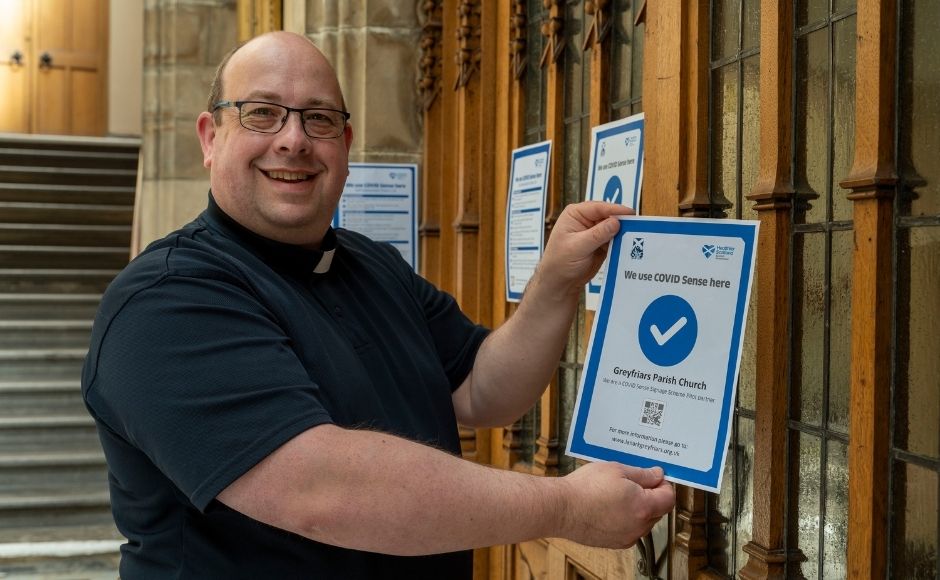
Mr Kerr said ministers, parish staff, priests, and other faith group personnel, should be automatically given keyworker status during a future pandemic.
"We did ask for it (during Covid) but were told it was not being granted," he revealed.
"This was despite the fact ministers needed to leave their houses to conduct funerals, provide pastoral care and support to individuals in times of illness and loss, as well as the need to visit hospitals and care homes in end of life situations.
"By comparison, administrators working for funeral directors, were deemed as such, and therefore received their vaccinations before ministers despite arrangements for funerals being made remotely and families not attending funeral director premises at all in most cases."
Funeral challenge
Dr Whyte said conducting funerals during the pandemic was a "real challenge" for ministers.
"Funerals are very core to who we are as a Church and how we relate to people," he explained.
"The preparation for death, the grieving and the immediate care of people afterwards, everything had to be done at a distance or on the phone or via a video link.
"The care of people who are dying and near the end of their life was obviously very restricted as well and we had heart tugging situations where people would speak to each other through windows and say goodbye to their relatives on the phone.
"Clearly, that's not an ideal way to end life and face loss - it felt wrong, caused anxiety and left lasting scars on people who felt they should have been there for their family and friends.
"That was a difficult thing and we had to find ways of supporting people as best we could."
Dr Whyte said ministers and church staff could not break the rules but they put services in place to help individuals and families.
"We created online events that would allow people to mourn together and that was also a challenge to try and regulate that," he added.
"You could say that only six people were allowed into a crematorium and the service would be broadcast online and then you find a hundred people in the carpark watching it on a phone.
"So, we missed out on a lot and I have no doubt for individuals, that carried forward into how they coped with loss."
Community support
Mr Kerr said the Scottish Government provided over £4.7 billion in grants for business support covering almost every sector of society but places of worship did not qualify for assistance because the funding was linked to business rates which churches are exempt from.
Even although other charities who have premises similarly do not pay business rates, due to this being ‘discretionary' from local authorities they were eligible for support which he says is ‘profoundly unfair'.
"Churches and other faith groups could not apply for government funding, yet we were the ones working harder than most, supplying volunteers, providing church halls to be used as hubs for food distribution and bearing all the costs associated with heating and lighting.
"Churches were filling the gaps that local authorities had left behind because they were not operating in the same way.
"Local Authorities commented that if it were not for the work that faith groups undertook many local authorities would simply have been unable to cope with the swell of requests they received for support.
"Despite all this, we did not qualify for any funding."
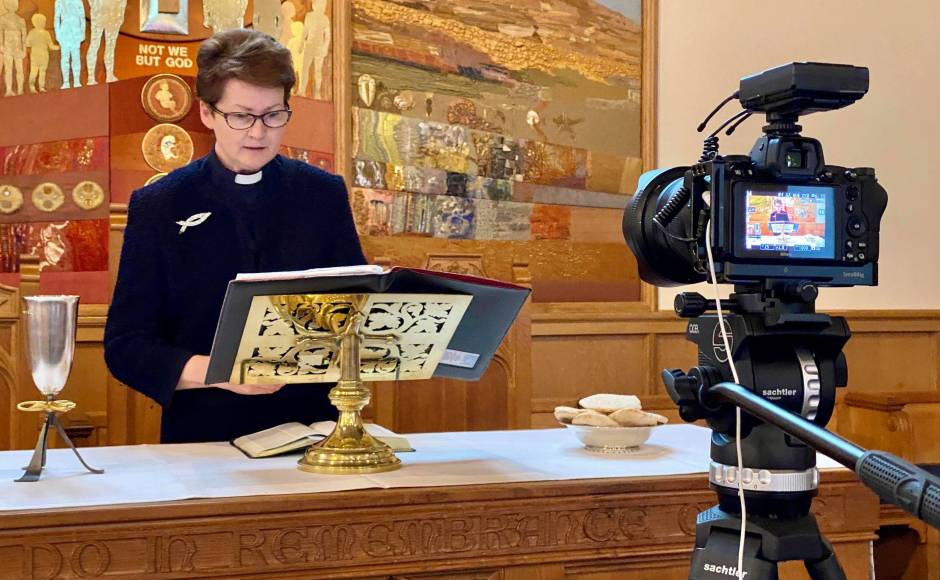
Mr Kerr said this must change in the future because congregations used their own scarce resources to fund community work at a time when their income was drastically reduced.
"The financial impact of the COVID-19 pandemic on our finances at a local level was huge," he added.
"Most of our income was derived through the weekly donations when people attended church.
"This was obviously stopped with the lockdown."
Mr Kerr said the four harms approach promoted by the Scottish Government focused too heavily on guarding against economic impact at the expense of other considerations.
"Community work and community support were the poor relations in the four harms approach," added the minister.
"The societal issues, such as the community wellbeing or indirect health, were not seen as a priority, I do not think the harms were balanced correctly.
"The government forgot about the wider impact of the pandemic and the support offered by the Church and other faith groups in society.
Sharing ideas and resources
Mr Kerr said that despite all of this, he recognised that those in government were trying to do their best and make decisions to keep people safe from a deadly virus and that whilst lessons should be learned as the nation reflects, it should be remembered that no-one set out to cause the Church or places of worship any harm.
Mr Kerr said his view is the pandemic brought out the best in the Church - "ministers came together in a way that we never had before".
"There was a genuine sharing of ideas and resources, of what things worked and did not and how we could use the guidance to do things," he explained.
"Some (ministers) coped better than others during this period.
"Some thrived on it, dependant on personality, and others, were exceptionally anxious about their own health and their ability to minister during such a crisis.
"There are still ministers today who have never fully recovered from the impacts of COVID-19, they are still tired from the exhaustion it caused them."
Mr Kerr said morale among ministers has "taken a hit" and the Church is dealing with major financial challenges that can, in part, be traced back to the pandemic when income practically dried up.
He said many church members died during this period and some did not return when buildings reopened - both scenarios have an impact on income and the life of the Church.
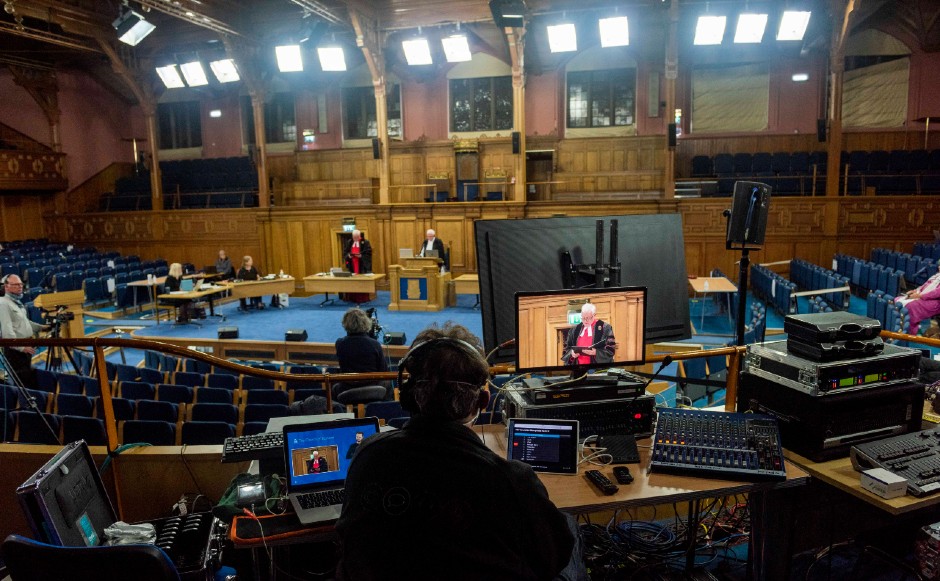
Dr Whyte told the inquiry that some ministers were tired out by the end of the pandemic, especially those nearing retirement age.
"They could not face having to do church in two kinds - live and online and we had more retirements than we expected," he added.
"There are ministers who would have continued but did not do so because they did not want to face a diminished church, with fewer people to look at and having to prepare two workloads."
Focusing on guidelines, Mr Kerr said places of worship were dealt with under a separate category which often led to difference in what could happen in churches and in other places causing confusion.
"For example, when society began to open back up after the first lockdown, people could attend church, if socially distanced," he added.
"However, they could not have a cup of tea and a chat afterwards in the hall but they could cross the road and have a cup of tea in a cafe, which seemed very odd.
"There were a lot of disparities and ambiguity in the guidance."
Dr Whyte said it was a struggle for the Church to re-open when restrictions were eased.
"People found it both frightening, if they were concerned about ill health, and unsatisfactory because we are a Church that sings and we were not allowed to sing hymns," he explained.
"We're separated, a distance from each other, and choirs were allowed to sing before congregations were allowed to sing, no one quite understood that one.
"Church wasn't what people expected."
Mr Kerr told the inquiry a little about how he personally felt at the beginning of lockdown as a parish minister.
He said "I remember standing in front of the congregation the Sunday before we went into lockdown and pronouncing the blessing at the end of the service when it suddenly struck me that some who were sitting in front of me would never be back in their church except for their funeral if the pandemic was to be as dangerous as predicted.
"Sadly, that became a prophetic thought and I took many funerals of people who had been in the congregation all their life and for whom the pandemic robbed them of their spiritual home of 80 or 90 years.
"It was incredibly upsetting and stressful as one who provides spiritual comfort to individuals.
"I know that I, and most if not all of my colleagues hope and pray we never live through another pandemic again, but if we do I know that we will stand ready to support our communities once again."
